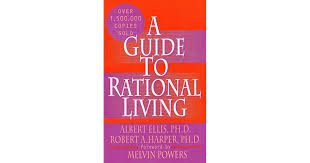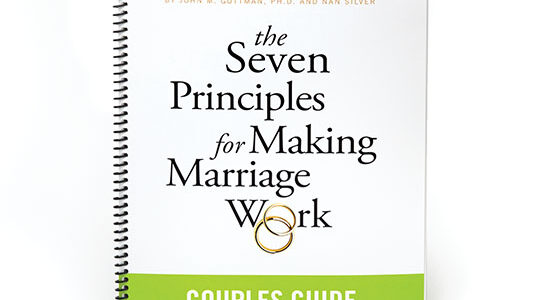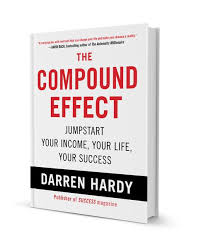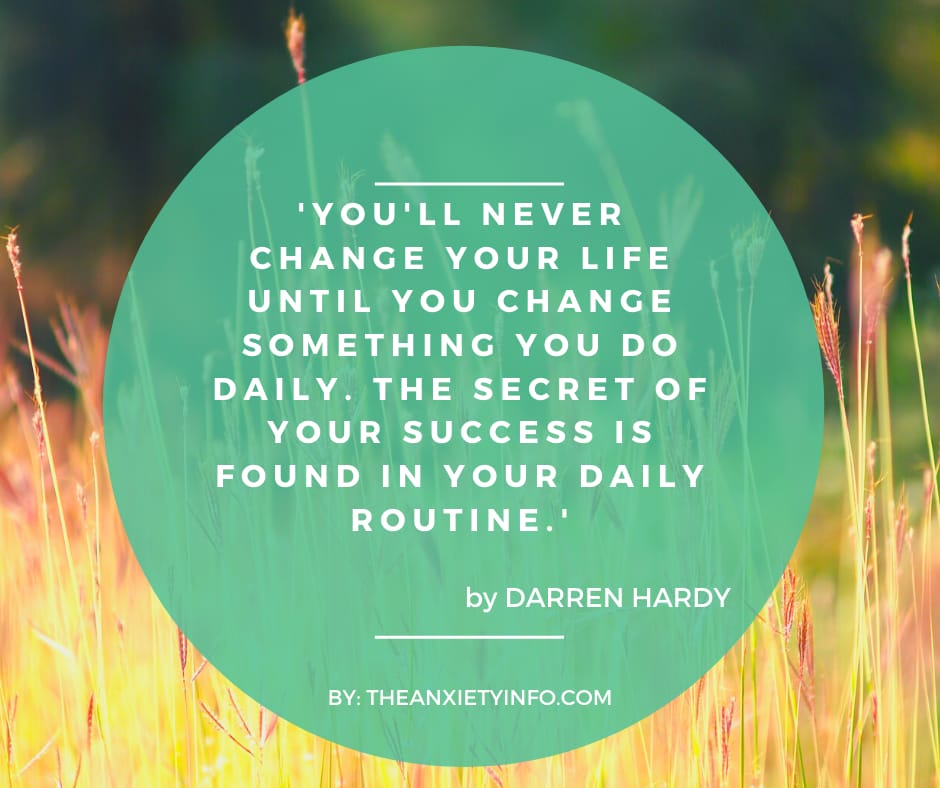A Guide to Rational Living, by Albert Ellis & Robert A. Harper, is a praiseworthy self-development guide with practical and proven techniques to change your self-destructive emotions and behaviors. The book vividly demonstrates what you do to unnecessarily distress yourself and how you can overcome this to become an emotionally stronger person.
With the on-going global coronavirus pandemic, this book proves to be particularly valuable as most individuals face unprecedented challenges in their lives; having to deal with emotional disturbance, extreme feelings of uncertainty, anxiousness, and recurring depressive thoughts.
The author, Albert Ellis (1913 – 2007) was one of the most prominent psychotherapists as he pioneered Rational Emotive Behaviour Therapy (REBT) which gained an extensive standing in the 1960s and is the basis of this book.
REBT is based on the concept that our thoughts generate our emotions and influence our behaviors. The author, Albert Ellis was certain that people can change their emotions together with their behaviors by debating their irrational thoughts with facts and reasoning. In this book, he highlights the top 10 irrational ideas that cause the greatest number of people to experience unpleasant emotions.
The author clarifies that the objective of implementing rationality is not to be more happy, but rather to make straight one’s thinking so that one is constantly less unhappy.
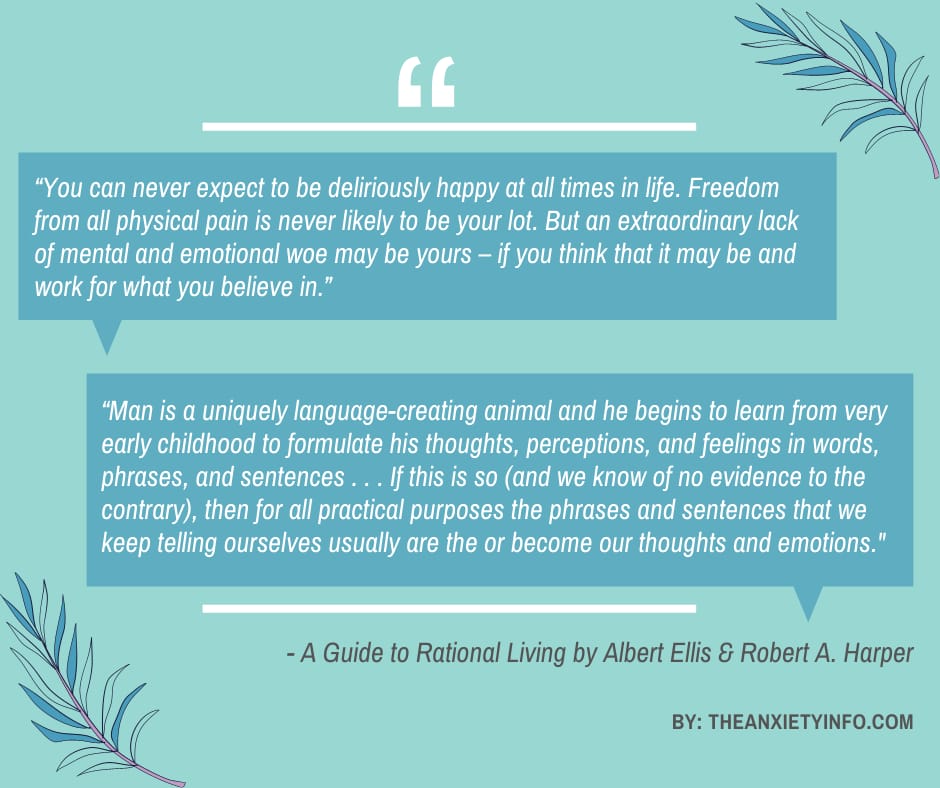
Observing your Internal Dialogue
Ellis explains that we humans as language-creating animals tend to articulate our emotions and ideas in words and sentences which effectually become our thoughts and emotions. So fundamentally, we are what we tell ourselves, and for any personal change, it requires us to initially look at our internal conversations. Do our internal dialogues SERVE US or UNDERMINE US?
On the topic of anxiety, Ellis emphasizes being able to challenge our irrational philosophies:
“…track your worries and anxieties back to the specific sentences of which they consist. Invariably, you will find that you are telling yourself:
“Isn’t it terrible that…” “Wouldn’t it be awful if…”
Ellis guides his patients to oppose these irrational philosophies with questions like:
“Why would it be so terrible that…?”
“Would it really be so awful if…?”
He goes on: “Certainly if this or that happened it might well be inconvenient, annoying, or unfortunate. But would it really be catastrophic?”
Consequently, in order to address any form of anxiety, Ellis marks:
“…verbal and active de-propagandization are usually essential. You must first realize that you created the anxiety by your internalized sentences, and you must vigorously and persistently ferret out these sentences and challenge and contradict them. Then you must also push yourself to do the thing you are senselessly afraid of and act against your fear.”
Never being ‘desperately unhappy’ again
Ellis goes on to highlight the fact that the greatest challenge for individuals today is having control over their emotional lives.
A Guide to Rational Living contains various records of therapy sessions between Ellis and his patients. Following is a considerable example of his advice to one of his clients suffering from depression.
“The best you can do, at first, is to observe your depressed state after they have already arisen. And then to see, by theoretical analysis and inference, that you must have brought them on by telling yourself some nonsense.”
“…this will often be difficult. For once your depression sets in, as you noted a while ago, you don’t feel like un-depressing yourself again; you almost want to stay depressed. And unless you combat this feeling, and actively go after your underlying sentences with which you created your depression, you will, of course, stay quite miserable.”
Now, the individual will face a dilemma: remain depressed for the foreseeable future or make an effort to fight the negative feeling by noticing what they did to initiate it.
“A tough choice,” Ellis states “But if you keep taking the lesser of these two evils. That is –combating your negative feelings, then eventually the time comes when your basic philosophy of life matures. As a result, you will depress yourself much more rarely, to begin with, and have an easier time getting yourself out of your vile mood when you do unconsciously put yourself in one.”
The Ultimate Point
Are human beings RATIONAL or IRRATIONAL beings?
According to the book, we are both. We are intelligent but we still pursue immature, nonsensical, bigoted behavior anyway. The basic to a good life is applying rationality to the utmost irrational aspect of life, the emotions.
There is a mirror of Buddhism in the rational-emotive approach as it recognizes that no matter what happened in your past, it is the present that matters and what you can do NOW to improve it. The author, Ellis learned this himself as a child: that you don’t have to become upset by circumstances unless you allow yourself to be, it is always possible to control your reactions. Even though this form of therapy is tough-minded, it in fact signifies an optimistic view of people.
Why you should read this book
It is an excellent self-help book on psychotherapy without the use of psychology jargon making it fit for laypeople. It essentially delivers emotionally troubled individuals with all the answers they seek especially those suffering from depression.
A Guide to Rational Living can benefit anyone to understand how their emotions are initiated, and most importantly how reasonably happy and fruitful life can be yours just through discipline and more caution in your thinking.
You may be doubtful of the fact that reasoning is the way out of your emotional clutter, but Ellis’s revolutionary ideas that are supported by his forty years of cognitive psychology is the rationale that it works.
